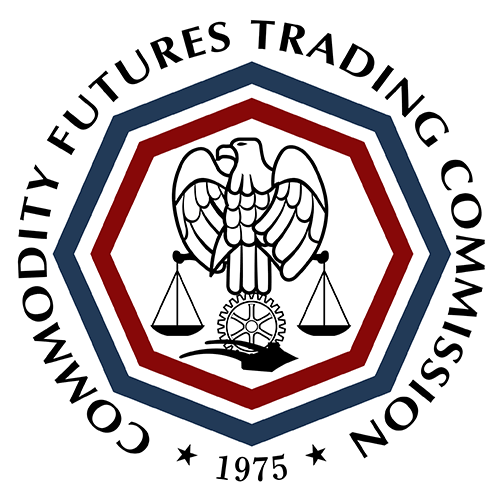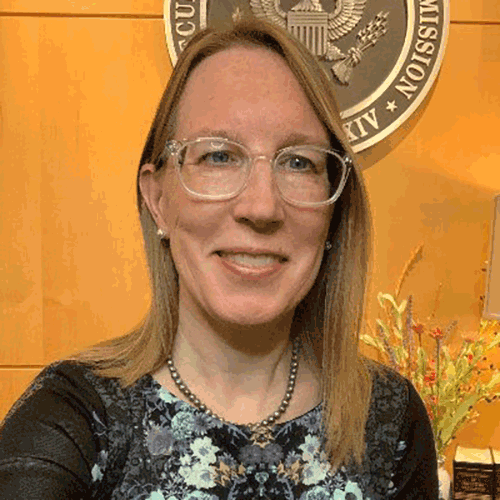Given Regulatory Uncertainties, Businesses Should Seek Experienced Legal Input on Blockchain Plans
Keith Miller, a partner at the Perkins Coie law firm, joins BlockchainJournal.com editor-in-chief David Berlind on the Blockchain Journal podcast during the NFT.NYC conference in New York City. As law firms go, Perkins Coie is well-known for its expertise in technology and has been involved in blockchain since 2012. During the interview, Miller recounts his journey into the space, representing early exchanges and navigating major crypto cases involving the SEC, such as Library (LBRY) and Ripple. But the conversation quickly turns to the current day environment where American businesses are hesitant to move forward with their blockchain plans so long as there's a chance they could end up on the wrong side of a law that hasn't even been written yet.
Today, Miller and other members of the Perkins Coie team help the law firm's clients figure out how to move forward with their blockchain innovations, given the significant regulatory uncertainty in the United States. While some states have passed blockchain-specific laws, the US Congress has made virtually no headway in terms of drafting such laws at the Federal level. This situation leaves government agencies such as the SEC, the CFTC, and the IRS to rely on existing laws (laws that were drafted before blockchain existed) to guide their regulatory activities when it comes to blockchain and cryptocurrency. Against the backdrop of that lack of regulatory clarity, Miller discusses the challenges facing organizations in the evolving crypto landscape and advises organizations against the idea of engaging in projects solely for fast profits. Highlighting recent cases involving NFTs, Miller stressed the need for organizations to develop a clearly articulated business purpose for their NFT ventures (implying that making a quick buck off primary market sales of NFTs is likely to attract the attention of regulators looking to carry out their next enforcement).
The conversation delves into the role of the SEC in fostering innovation amidst its primary objectives of investor protection, capital formation, and market integrity. Miller suggests that regulatory clarity is necessary for innovation to thrive, expressing skepticism about imminent changes from the SEC without Congressional intervention. The current highly tribalistic political divide is further complicating the regulatory landscape, potentially hindering progress when it comes to blockchain legislation. And, so long as the laws are slow in coming, organizations would be remiss not to seek the input of legal experts to help them strike the right balance between blockchain innovation and federal enforcement trends.
(The full-text transcript appears below.)
Published:April 19, 2024

13 min read
Audio-Only Podcast
Full-text transcript of David Berlind's Interview with Keith Miller, Partner, Perkins Coie
David Berlind: Today is April 4th, 2024. I'm David Berlind. This is the Blockchain Journal podcast coming to you from New York City, where the NFT.NYC conference is taking place on the West Side of Manhattan at the Jacob Javits Center. I'm interviewing all sorts of people: speakers [and] attendees who are representing their interest in the intersection of blockchain and the enterprise. One of those people that's sitting with me right now is Keith Miller. He is a Partner at Perkins Coie, which is a law firm. But I'll let you kind of explain to us what Perkins Coie does. First, thanks very much for joining us here on the Blockchain Journal podcast.
Keith Miller: Absolutely. Thank you, Dave, for having me.
Berlind: It's great to have you. Last year I was at this conference, and interviewed a few of the partners. We're back here again. I think you know - you guys are very well known, [you are a] very large law firm. But let's just talk a little bit about what the practice is doing right now.
Miller: Yeah. I think we're known as the technology firm. We represent lots and lots of new technologies that are coming up. I got involved back in 2012 when one of my partners called me and said, "Do you know anything about blockchain and exchanges?" And I said, "I used to be at the SEC a long time ago. I was in charge of broker-dealer enforcement." So, I said, "I know a lot about exchanges, but what's his Bitcoin thing?" So, that started me on the first case, where I represented one of the first exchanges that ultimately ended [up] getting shut down, and the government brought a case against the individual for money laundering. So, that's how I got involved. Perkins Coie has been at the forefront. I helped start a practice - a blockchain practice - back then, in 2012. We brought together... I think we have about 60 practitioners and different skill sets, from intellectual property to financial regulation to, you name it, bankruptcy. So that's who we are. And we've been around the space. I've been involved in – because I'm a white-collar litigator – I've been involved in lots of the major crypto-cases involving [the] SEC. Is it security or not? So, Library (LBRY). I represented Library in its case with the SEC. I've been in[volved] the Ripple, the Binance, all the big cases. I somehow represent either [the] individual, the entity, or some type of third party in connection with it. And so, that's who we are.
Berlind: Well, that's great. You've got a lot of history there. And, of course, going back to 2013, there have been a great many cases. There's a lot of recent history, of course with the SEC. We just published an article as a matter of fact, saying that that the courts seem to be sending a "message to the SEC," and lawmakers stopped the crypto crackdown because it seems like some of the courts are kind of saying that there's a little bit of overreach if you look at their decisions, not [that they're] necessarily writing a message to the SEC. I, just a couple weeks ago interviewed Hester Peirce, who is one of the Commissioners - one of the five Commissioners at the SEC, and we talked a little bit about her, her personal position on crypto regulation, is she seems to be to favor a very light hand of regulation. But, of course, we're in a sort of a protracted argument between a lot of different parties with their hands in the cookie jar there in Washington, DC. And the net result of this has been laws and regulations have been very slow in coming, and what we're really seeing is, what? A lot of sort of law-making by virtue of regulation enforcement, which is kind of weird.
So, you're here talking about how organizations should navigate this very, very precarious landscape, which, as Elizabeth Carpenter at Circle puts it, she calls it the "shifting regulatory perimeter," and that perimeter does keep changing, and I think there are a lot of enterprises that are holding back on innovation because they don't want to wake up one morning to a bunch of blue coats or a big headline on CNN?
Miller: That's right. And so, one way to look at this is: you look at what the SEC has done in the space. It started with money laundering. Going after people who are engaged in money laundering and looking at those entities, looking at Ponzi scheme-type of entities. In the last five to six years, it's been concentration on entities that, they aren't engaging in fraud and they're engaging in what the SEC will say is selling unregistered securities. And so, the issue of whether a security, as you said, the courts are still not clear on when and... There's a lot... a number of factors that you have to take into consideration. Frankly, I've been telling clients for ten years now [that] it's not going to change until Congress does something. [The] Courts aren't going to change. They may help narrow the scope, but each project is different. The facts are different. So, now we've seen from a lot of cryptocurrency cases - now you see it into NFT space. So, the SEC last year brought 2 cases. First cases, right? You saw first two criminal cases. The criminal cases - one was quite unique because the charges appeared to be insider trading by an individual who was at one of the exchanges and was engaging in some trading of NFTs before they became public. And so, you've seen one of those cases, you've seen some of these rug pull cases. Another case that the US Attorney's Bar brought... But, I think the common thing to most of these is [that] there's fraud - at least from the criminal perspective. So, what I tell clients is, "Look. If it looks too good, smells too good, don't engage in it, OK?" I don't know how many times I've spoken to [a] 22-year-old, 23-year-old who wants to get into this game, wants to make money real quick, and doesn't want to deal with the regulatory aspects of it. And three years later, they're calling me up saying, "I just got a subpoena from the SEC" or "from [the] DOJ. What do I do?" It's too late. And now it's a completely different set of circumstances.
Berlind: One of those young kids is now serving prison for a very long time.
Miller: Yeah, yeah. [A] long time. 25 years now, right? And the first person I represented did the exact same thing. He was exchanging crypto individually to individuals on a peer-to-peer basis, hundreds of thousands of dollars at a time. He didn't know who these people were. They turned out not to be the most decent people in the world. Let's put it like that, OK? They were criminals.
So, in terms of how you navigate this space, what I've told people is [to] make sure you have a business purpose. For example, on the NFT space, what is your business here? Is it to promote your product, or is it to get-rich-quick? The get-rich-quick is where the scrutiny is going to come into [play]. If it's to promote a product, promote a collectible, do something along those lines, you can do this in a safe way. OK? Although the SEC still thinks that - the main Commissioners, not Hester Peirce, but the other Commissioners - still think that a lot of the NFTs are questionably securities. And I know there's still some cases that are coming down the pipeline. OK. But it's how you promote them. I always tell people, "if you start talking about and emphasizing in an NFT that you're going to make money on these and that they're going to be extremely wealthy. And look at this, this, this and this, you're probably promoting it the wrong way. You're getting the wrong people and you're going to get screwed."
Berlind: Jonathan G. Blanco who is the founder [and] CEO of a company called Niftmint, last year when I bumped into him at this conference, He actually said "Here's the acid test: If you're promoting the value of something on the secondary market, you're in trouble. But if you're just promoting the utility and selling it on the primary market and not saying anything about the secondary market, you're probably in a safe space." But I guess one question for you and Perkins Coie is, you probably need a lawyer to help you review this strategy and the plan before you just go for it.
Miller: The most important word that you said there, "probably." Because I had a case where SEC vs. Library, and Hester Peirce came out very strong after the SEC brought the case and said we shouldn't be bringing this case. That was a pure - what we argue - was a pure use token. You take it, and you use it on their platform. And it was a platform where you could - just like YouTube - promote your videos, and promote yourself, and put things on, and people could buy or tip you for your content. We said it was use. Well, the court disagreed with us. So when you say, "probably," that's correct because, in that situation, the court and the SEC argue that any investment intent doesn't matter. Any investment intent made this a security. I completely disagree, and that's why I say until rules are enacted, where Congress gets involved, you're at the peril of hopefully you get a good judge, hope you get a good lawyer, and we'll see what happens.
Berlind: Or hopefully, Congress passes a law that puts you on the right side of that law as opposed to the left side, so you say.
Miller: And a lot of clients have gone down the road saying, "OK, we'll make it as conservative as possible." whatever their project is, "make as conservative possible. Let's get [it] out into the market and see how this plays out."
Berlind: Well, there are plenty of American companies or companies that do business in the United States where they're very much heavily engaged in NFTs and, obviously, they're on chains. So there's a lot of crypto-related activity. If only chain fees are getting paid, there's still a lot of that happening, so you can imagine they're taking a close look at this before they go too far. But, one of the big challenges has been, at least in the United States a lot of companies are kind of in a holding pattern until they see some sort of clarity when it comes to regulation. Now, compared to other jurisdictions, and I don't know if you practice law on those other jurisdictions - I mean internationally, the UK or Singapore, South Korea, Abu Dhabi - where the laws are moving along and there's a little more regulatory clarity, we see more innovation. But here the innovations [are] kind of stifled because these companies, these big enterprises, have general counsels. they have chief risk officers, and they're saying, "Full stop. We just [have] got to wait to see how this turns out."
Miller: Yeah, it's exactly right. Seven or eight years ago, I had a meeting with a client with the SEC, and we explained to them, "Look, if you're not going to give any clarity on what's going to happen, people are going to go offshore. They're going to go to other jurisdictions. Is that what you want?" Innovation... we were built. "The United States is built on innovation. Do you really want innovation to be occurring outside your borders? Then you're stuck," right? And I remember the staff just listening to us, nodding, and that didn't matter.
Berlind: Well, yeah. When I interviewed Ms. Peirce, she did have some interesting things to say. She made it clear that the SEC's role is not to drive innovation. However, she noted the three primary objectives of the SEC. She said one of them is to protect investors. The second one is to foster capital formation, and the third objective of the SEC is to maintain market integrity. Those are the three main goals, and she sort of implied that allowing for innovation to flourish is, in many ways, an extension of each of those objectives. For example, if you want to say, "We want to protect investors," well, giving investors the opportunity to diversify their investments and play different crypto or blockchain business startups, that's good. It protects investors - if they're really interested in this technology - that there are more companies than fewer, because they're... most of the companies are afraid to enter the market. You could say, "capital formation," you could see it. You could draw a connection there to allow this capital formation to take place. Allow [the] value of securities to improve over time. [That] requires some amount of investment and some amount of innovation. You were the SEC. How do you feel about that? [Do] you feel like the SEC does have to play a role in innovation or is it more just an extension of their existing mission?
Miller: Yeah, I think it's extension. You know the SEC is there to protect investors, right? That, in my opinion, that's the number one goal, right? But we also have to think of caveat emptor. Let the people make decisions. Don't automatically assume everyone doesn't understand it, and so, therefore, we have to look over their investments for them. That's not how the government should be operating. I think Hester Peirce has made that somewhat crystal clear in her dissents and a lot of the opinions that have come out saying, "Look. If someone... Why are we, as a government entity, telling people what they can and cannot invest in? And why are we getting so involved in this, particularly when we aren't willing to write the rules around this asset class?" So, I think I think we will see something in the future, but unfortunately, I don't think it's going to be coming from the SEC. I think it has to come from Congress. We need to first find out who should be the primary regulator. Should it be the SEC? Should it be the CFTC? I've always argued that crypto, they're commodities. That first and foremost, they are commodities. They are things; they're assets. Now, depending on how you couple them, [you] could make them a security. But there's still... We're still... We're not far in this book. I think we're probably halfway through.
Berlind: After covering the space now for almost two years. I can't help but make an observation, which is that the process seems to be descended into a political conversation, which is where, like all things in Washington, DC, end up, and in some ways, sometimes you see if one side says, "black" the other side just says, "white," and it doesn't really matter what's really good for the people or for the country. Is this one of those?
Miller: Yeah, absolutely. You see one political side saying one thing, the other political side necessarily saying the other thing. There's no gray, there's no compromise. It's like... OK, let's say we recognize... We want to make sure that FTX situations don't... How do we build regulations around that? So allow them, or allow an exchange, to function. Allow crypto tokens to be traded, but to ensure that there's not... There's no custody issue. There's no hype. There's things like no manipulation going on. And instead, it's black and white. It's all or nothing.
Berlind: You're right. Yeah, you're blue, we're red and never the two shall meet.
Miller: Yeah. Yeah, so we'll see what happens when we come into November and see what happens in the election, But I still... Talking to a lot of clients, and they're legislative affairs people, [and] I keep on hearing, nothing is really going to happen until Congress wakes up and decides to do something. And right now, it's almost as though you've got the old guard still controlling. The old guard doesn't want to do it. The new guard definitely does. They're listening to their constituents. The old guard, until there's movement there, either they retire or they figure out there's a new game in town, nothing's going to happen.
Berlind: That's bad news, especially for those companies in the United States that want to get going with their blockchain innovations.
Keith Miller, thank you so much for joining us on the Blockchain Journal podcast.
Miller: Thank you, David.
Berlind: We've been speaking with Keith Miller. He is a partner at Perkins Coie, a law firm that, as he described earlier, helps organizations deal with brand-new technologies. Not that blockchain is brand new, but it's new enough to be one of those technologies that's difficult to work with, given the lack of regulatory clarity these days and the lack of laws coming from Congress.
If you stay tuned to the end of this video, we'll put some QR codes up where you can find Keith and Perkins Coie.
So, thanks for joining us. We'll see you in the next video.

















